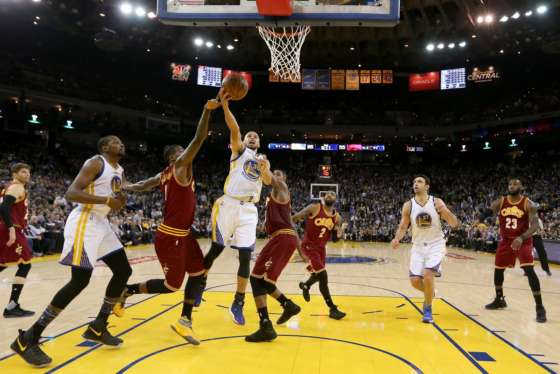WASHINGTON — Short. Physically unassuming. Even-keeled. A woman.
Michele Roberts may not fit the archetype of what one might expect from the person in charge of fighting to protect the livelihood of the best professional basketball players on the planet. But the more you learn about her, the more you understand how she became the first female head of a major sport’s players association and why she’s positioned to lead the NBA into a prosperous future.
Roberts grew up in the South Bronx projects, but found her way out via prep school, an undergraduate degree from Wesleyan and a law degree from Boalt, at the University of California, Berkeley. So where did she go, fresh out of law school, for her first professional job? To fight for those with nobody to fight for them, as a public defender in D.C. where over eight years she earned a fearsome reputation as a trial lawyer.
From there, she transitioned to corporate law. But how she ended up at the NBA was something of happenstance.
“It was not planned,” Roberts said at a recent sports business conference in Washington. “And that’s probably why it happened.”
She had just settled a big case earlier than expected and found herself with some downtime. Always a rabid Knicks fan, back to her childhood days in New York (“Don’t tell anybody, but I still love the Wizards,” she said. She also attended Game 6 and was witness to John Wall’s game-winning three-pointer), she thought she might just be a fit for the job. After beating out 300 other candidates, she made history.
But history isn’t of particular interest to Roberts. In a sport obsessed with its all-time pecking order with comparing greats from different eras — with the concept of legacy — Roberts couldn’t care less.
“I spend very little time thinking about legacy. I spend all my time thinking about who I work for,” she said.
That doesn’t mean she doesn’t stand up for her work. She famously told the group of players before the vote that elevated her to her current position that her past was “littered with the bones of men who were foolish enough to think I was someone they could sleep on.” Similarly, when a white man called her after her hiring and declared that she needed to hire him to be taken seriously in doing business, she told The Undefeated, “I’m think I’m pleased he wasn’t in my office, because I swear to God I’m sure I would have slapped the piss out of him.”
So far, her track record speaks for itself. Buoyed by the massive new television rights deal that preceded the latest round of collective bargaining, Roberts helped secure massive new contract opportunities for players, without having to push ownership to give up a greater percentage of their revenue stake. But she already knows other fights are on the horizon, particularly securing better wages for those players in the Developmental League.
This year, the NBA minimum rookie salary is $543,471, with a sliding scale up from there. Have at least three years of service time, and you’re making over $1 million. Meanwhile, the D-League pays its players one of two salaries: $26,000 to five players on each team and $19,500 to the rest. Roberts knows her fight for those players is at least as important as it is for the stars.
“When I was a public defender, I used to sometimes marvel at the fact that the guy standing next to me was counting on me, and probably nobody else in that courtroom was more important to them than me,” she told WTOP, emphasizing that while the jobs (and those she advocates for) have clear differences, the principle remains the same. “They do rely on me to stand up and be their voice and be their champion.”
She also knows there is a coming battle over the back-to-back road game situation. Teams are opting, in increasing frequency, to sit their stars in the second of two straight road games, largely due to studies that show players are three times as likely to get injured in such games. That means fans who paid to see the opposing stars, sometimes in their only visit of the year, feel shortchanged. While there have been plenty of suggestions as to how to address the issue, Roberts sees a pretty simple solution.
“Obviously, the easiest way to do that is to lengthen the season, and we’ve done that to some extent by shortening the preseason,” she told WTOP. “We may do more of that. It’s just the question: If we’re not going to reduce the number of games — and there’s no real interest in that on the players’ side or the owners’ side — then we have to talk about a longer season. And I don’t know that we’ll get a lot of pushback. I mean, guys love their vacation, but they also don’t want to get hurt. So it may be that that’s the only way to go.”
The current CBA is good for several more years, but Roberts doesn’t think there’s any need to wait until then to make the adjustment.
“We can do anything as long as we all agree.”







